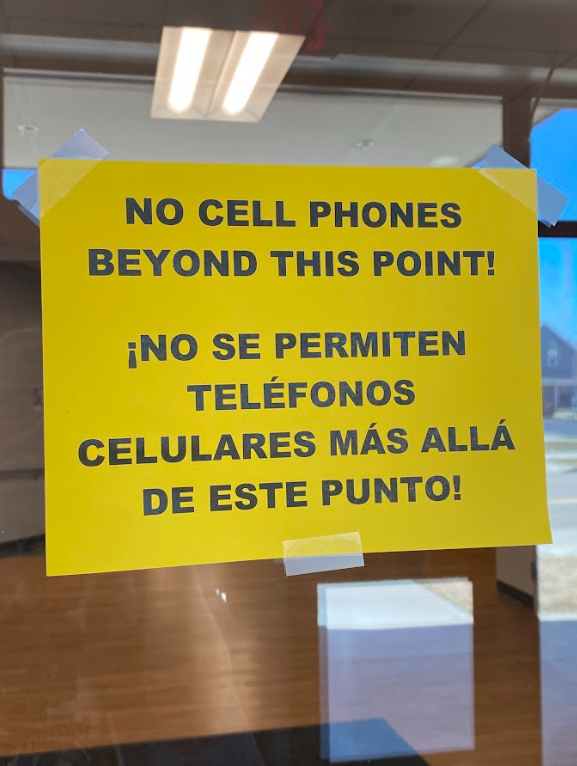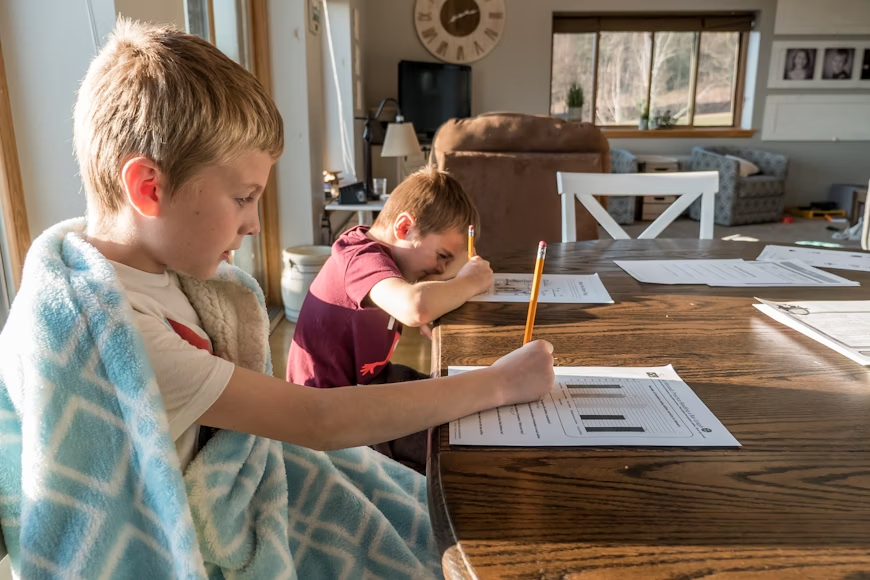 Just last spring, the Senate of Ohio passed a bill on April 9th, 2025, that prohibits student cellular telephone use in public schools. For the past three years, Dover High School has enforced placing cell phones in the cell phone pockets when coming into class. Now, students aren’t allowed to be on their phones at all during the school day. This is a big change for everyone, as we have gotten so used to the previous years. I asked students and staff from all over the building in study halls for their opinion of what they thought about this ‘no cell phone in school’ policy.
Just last spring, the Senate of Ohio passed a bill on April 9th, 2025, that prohibits student cellular telephone use in public schools. For the past three years, Dover High School has enforced placing cell phones in the cell phone pockets when coming into class. Now, students aren’t allowed to be on their phones at all during the school day. This is a big change for everyone, as we have gotten so used to the previous years. I asked students and staff from all over the building in study halls for their opinion of what they thought about this ‘no cell phone in school’ policy.
The opinions that I had received from the students around the building were mainly mutual and were on both sides of the spectrum. Lots of opinions rolled out as simple as many students replied, “Hate it” and “I don’t like it.” Some said, “It doesn’t really bother me”. Others’ responses varied and were a bit more opinionated. There were students who were both positive and negative. “Like it and don’t like it,” said quite a few students. At least 30+ students replied, “It doesn’t affect me much.”
Some students around Dover High are thinking that the new policy isn’t so bad. Aiden Corder claims, “No big deal,” Dante Clark had said, “Better focus.” Cole Greisen had said, “It’s awesome! People are learning better.” Mallory Norman had brought up, “It’s fine as we went right from phones 100% to none, which has affected some students more than others.” With a chunk of students in the middle of not really affected or some doing fine, there are about half of the students I had interviewed who were against the new policy. They disliked it because they felt like it made lunch boring now. “Hate it”, “Don’t like not having our phones”, “Lunch is now boring as we don’t have our phones”.
Quite a few teachers liked the policy, believing that it resulted in better learning in classes. Although along with the positives from some, others had no comment. “I like the rule as students can be more focused and not distracted. A difference from last year, I have seen through the halls students with their heads up and are more talkative,” said Mr. McKee. Mr. Von Kaenel said, “This has been great for more student interaction at lunch.” Mrs. Sondag said what she had observed: “It improves focus and social interactions with their peers.” Mr. Hindman replied, “It’s awesome! People are learning better!” “It’s made teaching more possible,” said Ms. Melody. I had walked past the library, and there were a couple of changes. Mrs. McKee had a couple of positives to say, “It allows kids to read more & I’ve had a lot more kids coming for books, at least double from last year! Send them all my way. There are plenty of books for everyone!” “It’s excellent for learning and teaching the material the students need. The one downside of this new policy, if an emergency comes up. It will take time to get any word out,” contends Mr. Shankel.
The issue from Mr. Shankel’s note about the policy has been brought up in every single room I have interviewed students in. If there were an emergency that would happen inside the building, students from last year would grab their phones from their phone pockets to text their family member/s to let them know what’s going on. Because of the new phone policy, if we had an evacuation, students wouldn’t have their phones, and their phones would be left behind in lockers or cars. To be able to let others know of an intruder, a fire, or a natural disaster would take time. Although the risks for any type of emergency are low, very rare occurrences, the risk factor is never zero. There is a protocol for this. Teachers and school staff would have the information for further details and for any questions.
Everybody has their own opinion about this new policy, maybe you can even relate to at least one of these many different responses.








